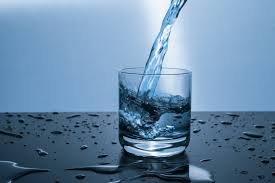Advertisements
Keeping your body hydrated is one of the keys to a healthy and energetic life, but how much water do you really need to achieve this goal? With so much information and myths about optimal water intake, it’s easy to get confused. This post dives deep into the science of hydration to shed light on the true needs of the human body, debunking popular misconceptions and offering insights based on recent studies.
Proper hydration isn’t just about drinking the classic “eight glasses a day.” In fact, the amount of water each person needs can vary significantly, depending on factors such as age, weight, activity level, and even the weather. Figuring out how much water you need is essential not only for your overall health, but also for optimizing the function of vital organs, improving physical and mental performance, and promoting an overall sense of well-being.
Advertisements
In this review, we’ll explore the signals your body sends when it’s dehydrated and how water intake can affect your focus, mood, and daily energy. We’ll also cover the importance of other sources of hydration, such as water-rich foods and beverages, and how they can complement your direct water intake to help you achieve the perfect balance for your body.
In addition, the post offers practical and personalized tips to make it easier to incorporate healthy hydration habits into your daily life. Understanding your body's specific needs and adopting effective consumption strategies can transform the way you feel throughout the day, bringing more vitality and willingness to face everyday challenges. 💧
Advertisements

The Importance of Hydration for the Human Body
Water plays a vital role in maintaining our bodily functions. From regulating temperature to eliminating waste, adequate hydration is essential for overall well-being. Approximately 60% of the human body is composed of water, highlighting its importance in biological processes. But how much water do we need daily?
Drinking water is crucial for maintaining fluid balance in the body, which affects everything from digestion to blood circulation. It also acts as a lubricant for joints and protects sensitive organs and tissues. It’s no wonder that even mild dehydration can drastically impact our energy levels and mood. 💧
Determining the Ideal Amount of Water
Factors Influencing Water Needs
The amount of water a person should drink can vary greatly depending on several factors. The main ones include:
- Age: Children and older adults may have different hydration needs.
- Physical activity level: Active people need more water to replace fluids lost through sweat.
- Climate: Hotter or drier environments require greater water intake.
- General health: Medical conditions and medications can alter water needs.
- Food: Diets rich in foods with a high water content, such as fruits and vegetables, may reduce the need for additional water.
The Eight Glasses a Day Rule: Myth or Reality?
There is a lot of talk about the recommendation to drink eight glasses of water a day, but this amount is not a universal solution. The rule emerged as a general guideline and does not take into account the individual variations of each organism. It is important to listen to your body and adjust your water intake according to your personal needs.
Benefits of Proper Hydration
Skin Health and Appearance
Proper hydration directly affects the health of your skin, keeping it more elastic and supple. Water helps eliminate toxins, promoting a healthier appearance. Therefore, if you are looking for radiant skin, drinking water regularly is a fundamental ally.
Recommended Articles
Cognitive Function and Energy
The human brain is highly sensitive to dehydration. Studies show that even a mild lack of water can impair short-term memory, attention, and cognitive performance. By staying hydrated, you not only improve your mental clarity, but also maintain high energy levels throughout the day.
Signs of Dehydration and How to Avoid It
It is crucial to be aware of the signs of dehydration to avoid its unwanted consequences. Some of the most common symptoms include dry mouth, dizziness, fatigue and dark urine. Some tips to ensure good hydration include:
- Carry a water bottle: Always keep a bottle of water with you, making it easier to drink regularly.
- Set reminders: Use apps or alarms to remind yourself to drink water throughout the day.
- Enhance the flavor: Add slices of fruit or herbs to make the water more flavorful and appealing.
Hydration: Much More Than Water
Although water is the main source of hydration, it is not the only one. Foods rich in water also play a significant role in your daily fluid intake. Fruits such as watermelon, strawberries and oranges, as well as vegetables such as cucumbers and tomatoes, are great options for staying hydrated. 🥒🍉
Additionally, beverages such as herbal teas and milk contribute to your daily fluid intake. However, it is important to be careful with drinks that can have a diuretic effect, such as coffee and alcohol, which can dehydrate you if consumed in excess.
The Role of Hydration in Physical Activities
During physical activity, the body loses water through sweat, and it is essential to replace these fluids to maintain performance and health. Drinking water before, during and after exercise helps prevent dehydration and optimizes muscle recovery. Athletes can benefit even more from isotonic drinks, which help replace lost electrolytes.
Final Considerations on Hydration
Hydration plays a vital role in promoting a healthy and vibrant life. Throughout this article, we’ve covered the vital importance of water in our bodies, from regulating temperature to protecting our organs. The ideal amount of water we need varies from person to person, influenced by factors such as age, level of physical activity, climate, and health conditions. It’s important to recognize that the famous “eight glasses a day” recommendation doesn’t apply universally, as each body has its own unique needs. Therefore, listening to your body is crucial to adjusting your water intake as needed.
Additionally, proper hydration offers numerous benefits, including healthier skin and improved cognitive function. These factors are essential for maintaining energy and well-being throughout the day. Recognizing the signs of dehydration, such as fatigue and dry mouth, and adopting simple strategies, such as carrying a water bottle or using reminders, can prevent adverse effects.
We must not forget that hydration goes beyond drinking pure water. Foods rich in water, such as fruits and vegetables, along with certain beverages, contribute significantly to daily fluid intake. However, caution should be exercised with diuretic beverages, such as coffee and alcohol.
For those who engage in physical activity, fluid replacement is even more critical to optimizing muscle performance and recovery. In short, staying hydrated is a simple yet powerful act that can transform your health and vitality. Always remember to listen to your body and adjust your hydration habits to reap the maximum benefits of this essential practice.




